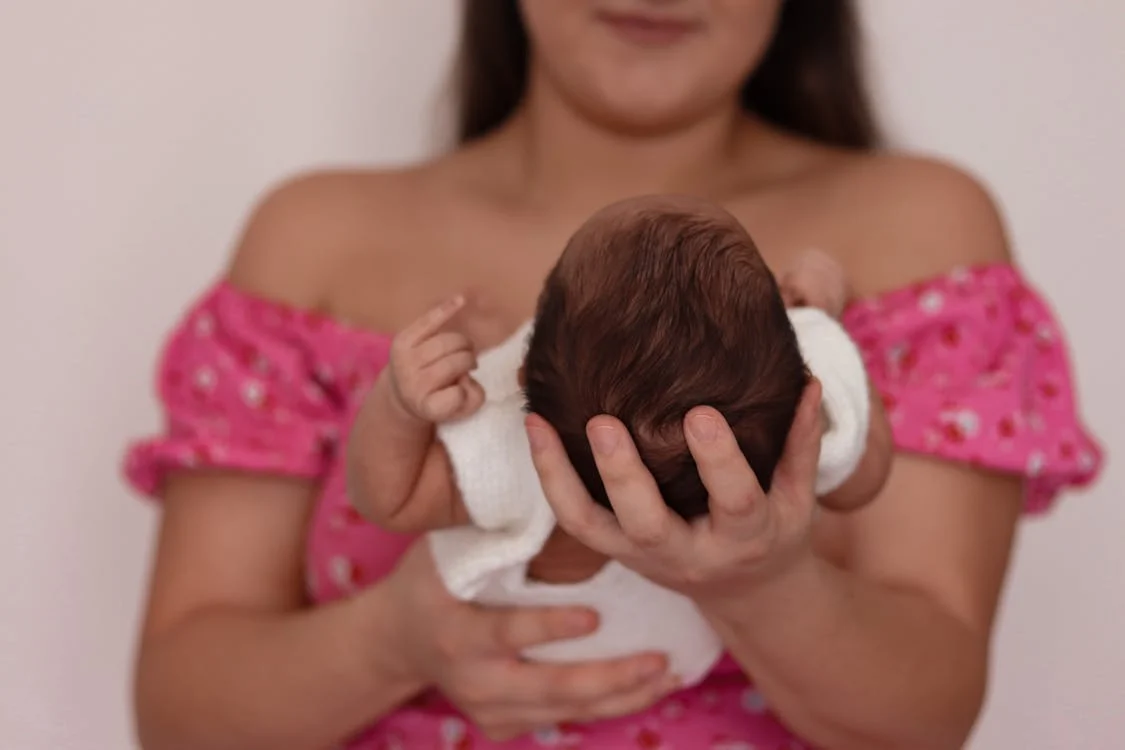You lean over your peacefully sleeping baby. Suddenly, you hear a new sound: a little snuffle, a whistle, or even a distinct snore. It’s natural to wonder, “Is it normal for my infant to be snoring?” You might also ask, “When should I be concerned about my baby snoring in sleep?” Occasional, soft baby snoring can be perfectly harmless. This is especially true if they have a cold or blocked nose. However, persistent or loud snoring can sometimes indicate an underlying issue. This guide will help you understand common causes of infant snoring. It will also help you identify when it’s time to consult your pediatrician.
Why Do Some Babies Snore? Unpacking Common, Harmless Causes
Many instances of baby snoring in sleep are temporary. They often do not signal a cause for alarm. Here are some frequent reasons:
Tiny Nasal Passages
Babies possess very small nasal passages. Consequently, even a small amount of mucus or dryness can cause them to make snoring or snuffling sounds as air passes through. This is particularly common for a newborn baby snoring in sleep.
Mucus & Congestion (e.g., Baby Snoring with Cold)
If your baby is snoring while sick or has a blocked nose from a common cold, congestion is a likely culprit. The snoring usually resolves as the baby snoring during a cold gets better. You might wonder, “is my baby snoring or congested?” Often, it’s a combination of both.
- Tip: Using a saline nasal spray (specifically for babies) can help. A cool-mist humidifier in their room may also assist in clearing nasal passages.
Sleeping Position (e.g., Baby Snoring in Car Seat)
Sometimes, a baby’s specific position can lead to snoring. For instance, baby snoring in a car seat while sleeping can occur. This might happen if their head slumps forward, slightly obstructing their airway.
- Important Note on Car Seats: Occasional baby snoring in a car seat might happen during travel. However, remember that car seats are for travel safety, not for routine or prolonged sleep. Sleeping in a semi-upright position for long periods can pose risks. Always ensure your baby is positioned correctly in their car seat. They need proper head support. Transfer them to a firm, flat sleep surface (like their cot) as soon as your journey ends. The answer to “is it ok for baby to sleep in car seat?” is generally: only for short, supervised periods during travel.
Relaxed Throat Tissues During Deep Sleep
Babies, just like adults, experience different sleep stages. When a baby enters a deep sleep phase, the tissues in their throat can relax. This relaxation can cause these tissues to vibrate, leading to soft snoring sounds. Many parents observe this.
When Infant Snoring Might Be a Concern: Red Flags to Watch For
While the above causes are often normal, persistent or specific types of infant snoring warrant a discussion with your doctor. Pay closer attention if you notice these signs:
- Loud, Consistent Snoring Every Night: If your baby snores really loud every single night, it’s worth investigating. This differs from soft snores when they have a cold.
- Pauses in Breathing (Apnea): This is a key concern. Observe if your baby stops breathing for short periods (e.g., 10-20 seconds) while sleeping. This might be followed by a gasp, snort, or them waking up. Such events could indicate baby snoring sleep apnea.
- Gasping, Choking, or Snorting Sounds: Frequent, loud gasping or choking sounds during sleep are not typical. You should get these checked.
- Difficulty Breathing or Laboured Breathing: Look for signs like their chest or ribs pulling in noticeably with each breath (this is called retractions). Flaring nostrils while breathing also signals difficulty.
- Restless Sleep or Unusual Sleep Positions: If your baby thrashes around a lot during sleep, sweats excessively, or consistently sleeps in unusual positions (like with their head tilted far back as if trying to open their airway), it could relate to breathing difficulties.
- Daytime Symptoms to Note:
- Excessive daytime sleepiness, even if they seem to have had adequate night sleep.
- Difficulty waking up in the morning.
- Poor weight gain or noticeable feeding difficulties.
- Unusual behavioural issues or irritability during their waking hours.
- Mouth Breathing vs. “Baby Snoring Through Nose”: Some nasal snoring, as mentioned, can be normal. However, consistent mouth breathing during sleep, especially if snoring accompanies it, should be evaluated by a doctor. You might wonder, “will baby breathe through mouth if nose is blocked” guidance usually confirms they can. However, persistent mouth breathing during sleep isn’t ideal and warrants checking.
Potential Underlying Causes of Concerning Infant Snoring
If your baby’s snoring is persistent and you observe other symptoms, potential underlying conditions could cause it:
- Enlarged tonsils or adenoids often cause obstructive sleep apnea in children.
- Allergies or chronic nasal congestion can lead to snoring.
- Laryngomalacia, a congenital condition where larynx tissues are floppy, may cause noisy breathing (this often improves with age).
- A deviated septum or other structural nasal abnormalities can also be a factor.
- Obstructive Sleep Apnea (OSA) is a condition where breathing repeatedly stops and starts during sleep.
What Parents Should Do If Concerned About Baby’s Snoring
- Observe and Note Details Carefully: Keep a log. Note when the snoring occurs, its loudness, and any associated symptoms. These include pauses in breathing, gasping, or daytime sleepiness. Videos of the snoring can be very helpful for your doctor.
- Consult Your Pediatrician or GP Promptly: This is the most important action. Describe your observations clearly. Your doctor can assess your baby. They will determine if further investigation is needed. They can also rule out or diagnose any underlying conditions. Do not try to self-diagnose baby snoring sleep apnea or other serious issues.
- Follow Medical Advice Diligently: If your doctor identifies a cause, they will recommend appropriate management or treatment. Follow this advice closely.
Conclusion:
Hearing your infant snoring can certainly be unsettling for any parent. However, many instances are perfectly normal and temporary. This is especially true if your baby is snoring with a cold or has slight nasal congestion. The key is to observe the pattern carefully. Look for other concerning signs. If the baby snoring in sleep is loud, persistent, or accompanied by issues like pauses in breathing, gasping, or significant daytime problems, it’s always best to seek professional medical advice. Trust your parental instincts. If something feels off about your baby’s breathing or sleep, get it checked out for your peace of mind.
A calm and clear airway is crucial for good sleep. For more on creating an optimal sleep environment, see our 3 Simple Ways to Help Your Baby Fall Asleep Faster. If sleep disruptions are frequent, our guide on Baby Waking Up Every Hour? might also be useful.
What did you think of this post? Has your baby snored? Share your experiences or questions in the comments below!

